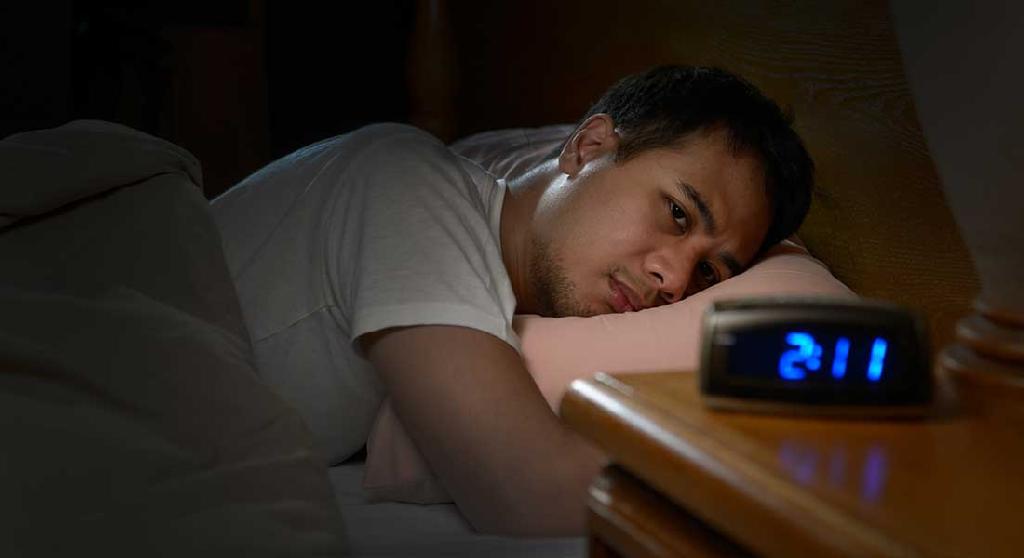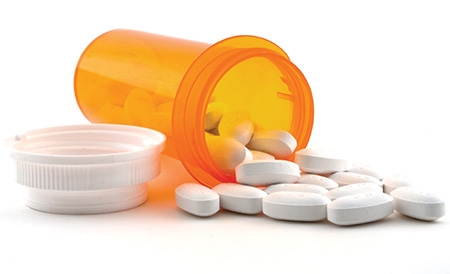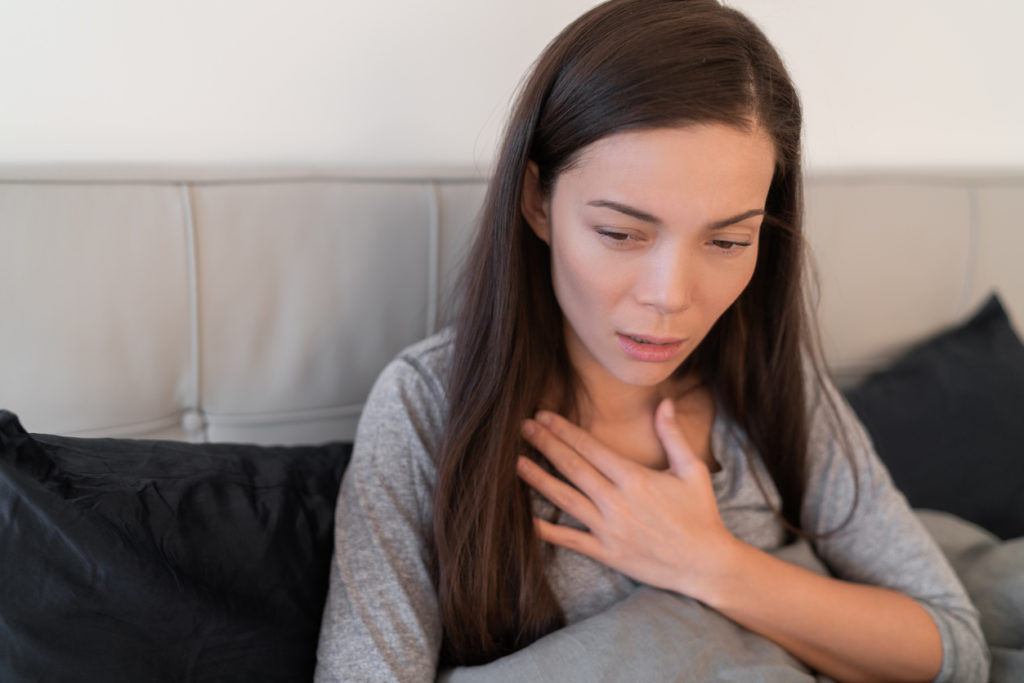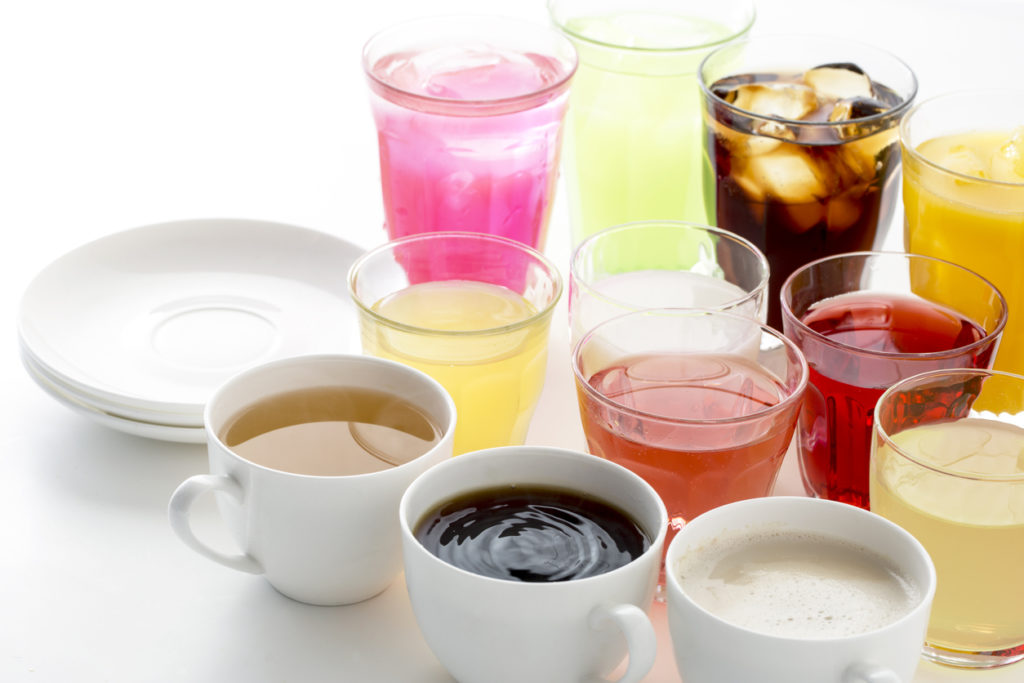Caffeine and Mental Health
The pros and cons of caffeine consumption often are debated. Generally, consuming caffeine in moderation is considered safe, while consuming too much caffeine can cause adverse reactions. People living with mental health diagnoses – like major depression, bipolar illness, anxiety disorders, or thought disorders – should understand the effects of caffeine on their mental health and discuss their concerns with their healthcare provider.
Benefits of Caffeine
Moderate caffeine consumption – defined as 300 to 400 milligrams of caffeine per day or about 3 to 4 cups of coffee – can offer some obvious benefits, particularly for people who need help with alertness and concentration and people who have some mild forms of sadness.
Some research suggests that moderate daily caffeine intake may decrease your risk of developing Parkinson’s disease and Alzheimer’s disease. And some research points to a decreased risk of heart disease and stroke for people who drink coffee regularly, though, because the results were not associated with other caffeinated beverages, ingredients other than caffeine in coffee may offer the protection.
For individuals with a serious mental health diagnoses, however, the potential risks of caffeine consumption likely outweigh these potential benefits.
Caffeine, Sleep, and Mental Health
The most important factor to consider is how caffeine can impact sleep. Drinking caffeine, even in small amounts, too close to bedtime can disrupt the sleep/wake cycle. For people with major depression or bipolar disorder, a consistent sleep schedule that includes at least 8 hours of uninterrupted sleep per night is an important lifestyle strategy to help prevent depressive or manic episodes. Even for people who do not have a mood disorder, a few nights of insomnia due to caffeine use can produce mood effects like feelings of sadness or low energy.

Drinking caffeine – even in small amounts – too close to bedtime can disrupt the sleep/wake cycle.
A healthy sleep routine that results in a predictable sleep schedule, sometimes called “sleep hygiene,” is particularly important for people diagnosed with a bipolar disorder or for people prone to manic or hypomanic episodes. The potential sleep disruptions caused by caffeine, combined with its effects as a stimulant, can precipitate hypomania or mania – which are mood episodes characterized by high energy, racing thoughts, and impulsive behaviors. Untreated mania can damage the brain, and impulsive behaviors can have long-term consequences. Individuals with bipolar illness should therefore understand the risks of consuming caffeine.
Experts recommend avoiding caffeine 6 hours before bedtime. For example, if you go to bed at 10:00 PM, try avoiding caffeine after 4:00 PM. Even a cup of decaf coffee, which still contains a not-so-insignificant-amount of caffeine, can interrupt sleep.
Caffeine and Psychiatric Medications
Another consideration for people with a mental health diagnosis: caffeine can change the way psychiatric medications are metabolized. We know that roughly 90 percent of all psychiatric medications are metabolized through an enzymatic system called the cytochrome P450 system. Caffeine lowers the production of some enzymes in this system and increases the production of others.
When caffeine changes the production of the enzymes that metabolize psychiatric medications, it functionally changes the dose of medication in your body. If caffeine causes your liver to produce more of the enzymes that metabolize your antidepressant medication, there will be less active medication (i.e. a lower dose) in your body. Having a lower dose of your medication in your body than what your physician prescribed could potentially cause a relapse in symptoms, or may lead you both to believe that the medication is ineffective when, in fact, the lack of results is due to enzyme induction.

For prescribers, caffeine can make it more challenging to help patients find the optimal dose of psychiatric medication.
Likewise, there are other enzymes that caffeine inhibits the production of, meaning that your body produces fewer of those enzymes as a result of drinking caffeine. A functional dose of a medication higher than what your physician prescribed could cause or worsen side effects or adverse reactions. For prescribers, caffeine can make it more challenging to help patients find the optimal dose of psychiatric medication.
Caffeine and Diagnosing Mental Health Disorders
In addition to complicating medication management, taking a step back, caffeine also can make diagnosing psychiatric disorders more challenging. Diagnosing anxiety and panic disorders and diagnosing mania associated with bipolar disorder can be especially difficult with caffeine as part of the equation.
One of the exclusionary criteria for an anxiety or panic disorder diagnosis in the DSM5 is that symptoms cannot be related to substance use. Caffeine is a moderately potent stimulant and can induce many conditions that mimic symptoms of anxiety and panic disorders, including heightened alertness, irritability, agitation, rapid heart rate, and increase in blood pressure. Overuse of caffeine also can contribute to changes in bowel or bladder habits, and gastrointestinal issues often are cardinal symptoms of anxiety disorders. A physician cannot diagnose an anxiety or panic disorder until the patient has documented sobriety from caffeine, and caffeine can be ruled out as the cause of these symptoms.

Patients must remove caffeine from the equation to be certain that the symptoms they are experiencing are related to a psychiatric diagnosis.
Similarly, due to the effects of caffeine on sleep and caffeine’s effects as a stimulant, a patient must be caffeine-free for a period of time before a clinician can link symptoms like sleeplessness, high energy, or racing thoughts to a diagnosis of a hypomanic or manic episode of bipolar I or bipolar II disorder.
Patients have to remove caffeine from the equation to be certain that the symptoms they are experiencing are related to a psychiatric diagnosis.
How much caffeine is too much?
For people without a psychiatric diagnosis, in moderation, many substances, including caffeine, may not be a problem. It really boils down to whether use of the substance is causing disability for that individual. If you can’t control how much caffeine you drink or, if, after skipping your morning coffee, you’re not functional at work, those would be signs that there could be an issue.
The DSM5 defines overuse of caffeine as more than 400 mg per day, which is approximately equivalent to about 5 cups of home-brewed coffee.
Note that it is recommended that people who are pregnant or trying to become pregnant should limit caffeine intake to 200 mg per day and discuss the risks of caffeine consumption with their healthcare provider.
At this time, pediatricians advise against caffeine for children under 12 and against children and teens consuming any energy drinks. Pediatricians also suggest limiting caffeine to no more than 100 mg (about two 12 oz. cans of cola) daily for adolescents 12 to 18 years old. (Regardless of caffeine content, excessive sugar content make sodas a poor choice for daily consumption for adolescents.)
Know How Much Caffeine You are Consuming
So many foods and beverages contain caffeine that it can be hard to know how much total caffeine you are ingesting. Even decaf tea or coffee includes some caffeine. Carefully read the labels of products, particularly if they are marketed as “energy boosting.”

Many resources are available to estimate the amount of caffeine in your favorite beverages and foods.
Caffeine also is an ingredient in products like chocolate, wheatgrass juice, and many diet pills and supplements. Always consult a physician before taking any kind of supplement, especially if you are taking other prescription medications.
Many resources are available to estimate the amount of caffeine in your favorite beverages and foods.
How to Reduce Caffeine Consumption
Eliminating caffeine from your diet abruptly poses no serious health risks, however you could experience unpleasant side effects like headaches and nervousness. Therefore, unless caffeine is affecting your sleep or health, or unless instructed otherwise by your healthcare providers, you may want to consider gradually reducing your caffeine intake over a period of two to three weeks.
Consider substituting your coffee with a caffeine-free herbal tea. Similarly, consider switching from drinking sodas to carbonated waters with natural, unsweetened flavorings. Increasing your daily intake of water to 4 to 6 cups per day may have positive health benefits as well.
Weighing the Pros and Cons of Caffeine
For people with a psychiatric diagnosis, the benefits of caffeine likely do not outweigh the challenges caffeine poses to caring for your mental health. Talk to you mental healthcare provider about whether avoiding caffeine should be part of your overall long-term wellness plan. For people who are struggling to solidify an accurate psychiatric diagnosis or medication strategy, abstaining from caffeine for a period of time may remove some obstacles.
Patients who admit to the residential treatment programs at Skyland Trail are required to abstain from or limit caffeine while enrolled in services to facilitate these important aspects of their treatment. Reducing or eliminating caffeine also is a component of the healthy lifestyle and wellness programs that are an integrated part of psychiatric treatment at Skyland Trail.
For people with no psychiatric diagnoses, consult with your healthcare provider about the role caffeine consumption may play in your overall mental and physical health.
